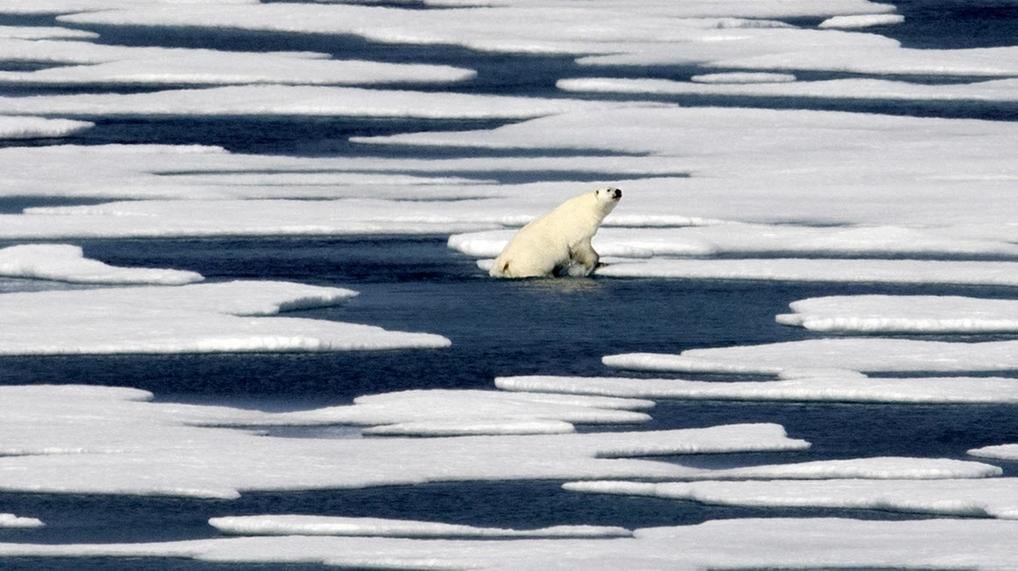Federal Judge Restores Obama Ban on Oil Drilling in Arctic Waters

A federal judge on Friday night reinstated an Obama-era ban on oil-and-gas drilling in vast swaths of the Arctic Ocean, holding President Donald Trump exceeded his authority in attempting to overturn it.
The ruling by U.S. District Judge Sharon Gleason tossed out Trump’s executive order overturning the ban, potentially undermining a central part of the Trump administration’s effort to expand oil and gas exploration off the coast of the United States.
Gleason said that while presidents do have the power under federal law to protect certain lands from development, they can’t unilaterally revoke those removals.
If Trump wants to try to reopen the Arctic and certain areas of the Atlantic Ocean that were the subject of the underlying lawsuit, he’ll have to seek congressional authority to do so, she said.
“The wording of President Obama’s 2015 and 2016 withdrawals indicates that he intended them to extend indefinitely, and therefore be revocable only by an act of Congress,” Gleason wrote.
The Trump administration has proposed opening large swathes of previously undeveloped offshore areas off the Atlantic, Gulf, Pacific and Arctic coasts to oil and gas exploration, touching off a firestorm of opposition from members of Congress, coastal states, and environmental groups.
Just this past week, Representative Joe Cunningham, D-S.C., introduced a bipartisan bill aimed at outright banning oil and gas exploration off the Atlantic and Pacific coasts. Representative Francis Rooney, R-Fla., is poised to file a similar bill, calling for a ban on new offshore oil and gas exploration off the Gulf Coast.
Friday’s ruling focuses on about 125 million acres of the Arctic Ocean and 3.8 million acres of the Atlantic Ocean, in an area stretching from Maryland to Massachusetts , that President Barack Obama ordered protected under the auspices of the Outer Continental Shelf Lands Act.
In 2015, Obama halted exploration in coastal areas of the Beaufort and Chukchi seas and the Hanna Shoal, an important area for walruses.
In late 2016, he withdrew most other potential Arctic Ocean lease areas — about 98 percent of the Arctic outer continental shelf.
The White House is expected to appeal Gleason’s ruling. During oral arguments in November acting Assistant U.S. Attorney General Jeffrey Wood told the court environmental groups were misinterpreting the intent of the Outer Continental Shelf Lands Act.
Wood said it is meant to be flexible and sensible and not intended to bind one president with decisions made by another when determining offshore stewardship as needs and realities change over time.
If the Trump administration doesn’t prevail on appeal, it’ll have a tough time convincing Congress to go along with the president’s wishes.
House Democrats have prioritized climate-change policies to limit fossil-fuel consumption and greenhouse gas emissions and are unlikely to green-light any attempt to expand offshore oil and gas exploration.
Just this past week, they introduced a new bill, the Climate Action Now Act, aiming to hold the Trump administration to the United States’ original commitments under the 2015 Paris Climate Accord.
The American Petroleum Institute, a defendant in the case, said in a statement that it was disappointed in the ruling.
“In addition to bringing supplies of affordable energy to consumers for decades to come, developing our abundant offshore resources can provide billions in government revenue, create thousands of jobs and will also strengthen our national security,” the Institute said.
Environmentalists, meanwhile, were ecstatic.
In a tweet Earthjustice, which represented numerous environmental groups that sued the Trump administration over the April 2017 executive order reversing the drilling bans, called Gleason’s decision “a direct blow to the Trump administration’s drill everywhere policy.”
“This victory shows that no one, not even Trump, is above the law,” said Gene Karpinski, president of the League of Conservation Voters. “Offshore drilling and the associated threat of devastating oil spills puts coastal economies and ways of life at risk while worsening the consequences of climate change. President Trump wanted to erase all the environmental progress we’ve made, but we fought back and we won.”
A spokeswoman for the Interior Department declined comment Saturday, explaining the department does not comment on ongoing litigation.
The case is League of Conservation Voters v. Trump, 17-cv-000101, U.S. District Court, District of Alaska (Fairbanks).
























